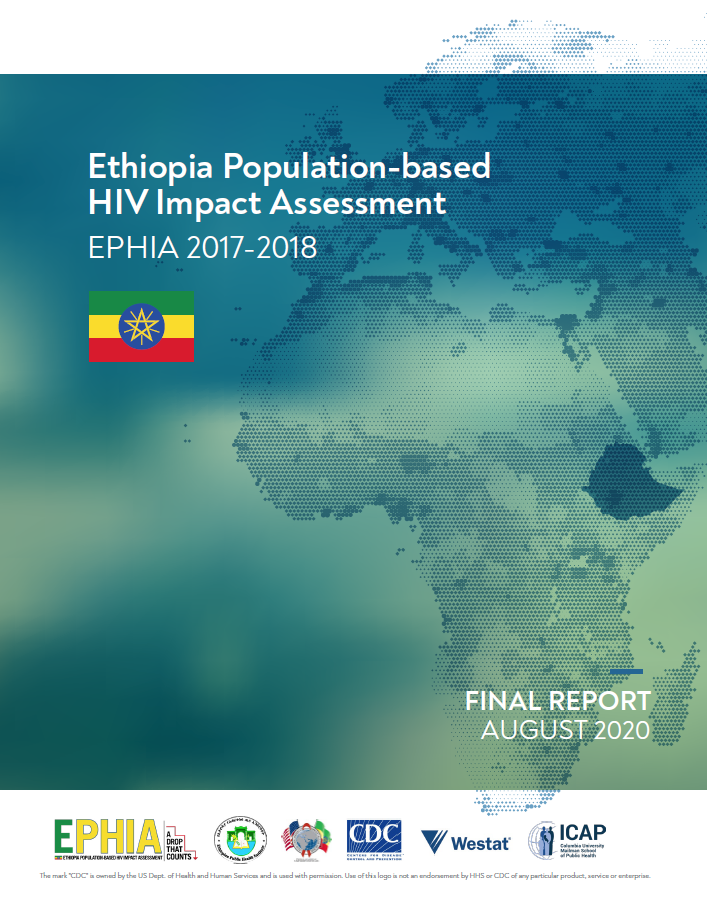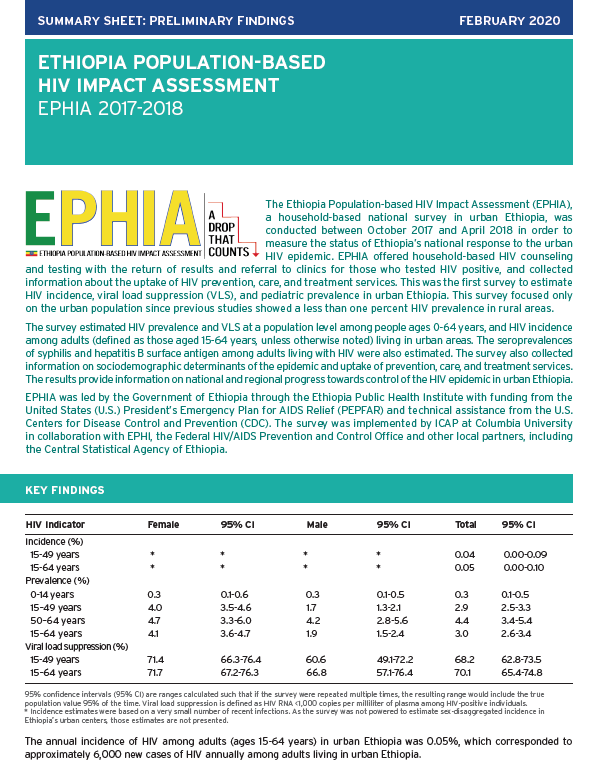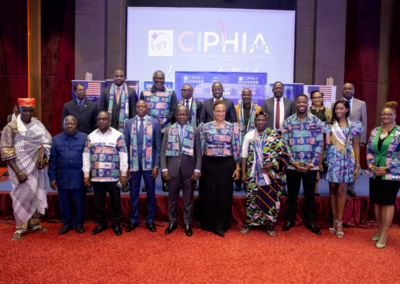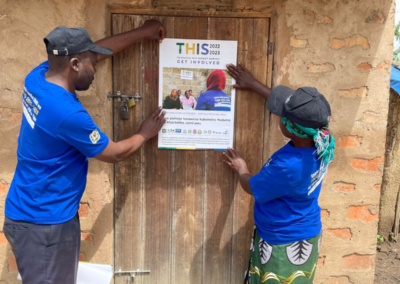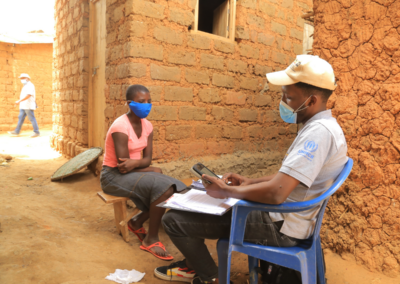The Ethiopia Population-based HIV Impact Assessment (EPHIA) was a household-based national survey in urban Ethiopia. EPHIA focused on measuring key biological endpoints to provide direct estimates of HIV infection, risk, and burden as well as the effectiveness and population-level impact of the HIV-related prevention, care and treatment interventions implemented in urban areas of the country.
Its primary objective was to estimate the national and subnational HIV viral load (VL) suppression (VLS) (defined as less than 1,000 copies per milliliter [mL]) among adults (defined as those aged 15-64 years in this survey) living with HIV. In addition, EPHIA measured the national- and subnational-level prevalence of HIV, the annual HIV incidence among adults, CD4 counts, antiretroviral (ARV) drugs in blood, transmitted HIV drug resistance, pediatric HIV and VLS prevalence, prevalence of syphilis and hepatitis B in adults, and progress toward the 90-90-90 targets as defined by the Joint United Nations Programme on HIV/AIDS (UNAIDS). The survey also collected information on behaviors associated with HIV acquisition and transmission, common HIV co-morbidities, and other health conditions.
This project is supported by the U.S. President’s Emergency Plan for AIDS Relief (PEPFAR) through CDC under the terms of cooperative agreement award # 1U2GGH001226. The findings and conclusions in this report are those of the authors and do not necessarily represent the official position of the funding agencies.






